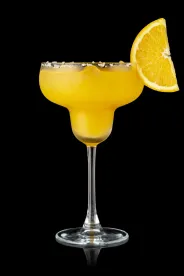-
A proposed class action filed last year in the Southern District of New York asserts that Coca-Cola Company’s Topo Chico brand Margarita Hard Seltzer, made with fermented sugar alcohol and agave sweetener, is deceptively labeled as a cocktail containing tequila. In support of her claims, the plaintiff asserts the terms “margarita” and “hard,” together with pictures of an agave plant on the case packaging, signal that the products contain tequila because tequila is a defining ingredient of a margarita cocktail and the term “hard” refers to distilled spirits (i.e., “hard liquor” such as tequila).
-
In an April 21, 2023 opinion deciding a motion on the pleadings, the judge ordered the Topo Chico case dismissed with prejudice, finding a reasonable consumer viewing the product’s label as a whole would understand they were purchasing a hard seltzer made to taste like a margarita and not a margarita cocktail. Noting that hard seltzer is a popular category of alcoholic beverages, the judge found that reasonable consumers would recognize Margarita Hard Seltzer as a product distinct from cocktails. Unlike the Topo Chico product, canned margarita beverages noted in the plaintiff’s complaint are described as “premium cocktails,” are labeled as “Perfect Margarita” and “Sparkling Margarita,” without any qualifiers, and specify that they contain tequila. The judge also found a reasonable consumer would understand the term “hard” in “hard seltzer” in the same way it is used in “hard cider” or “hard lemonade,” i.e., to indicate that the product contains alcohol, as distinguished from a non-alcohol version of the product. In further support of his conclusions, the judge found it implausible that the plaintiff thought she was buying a product containing tequila when cursory observation would show the product surrounded in the grocery store by soft, drinks, beer, and hard ciders/lemonades/seltzers, but no hard liquor or cocktails because these cannot legally be sold in grocery stores in the state.
-
This case is a reminder that context matters and a plaintiff’s selective interpretation of isolated terms on a product label will not be sufficient to show that reasonable consumers would be deceived.
Frederick Stearns and Emily Thomas also contributed to this article.






 />i
/>i

